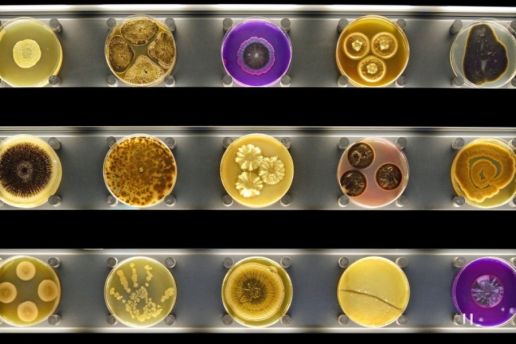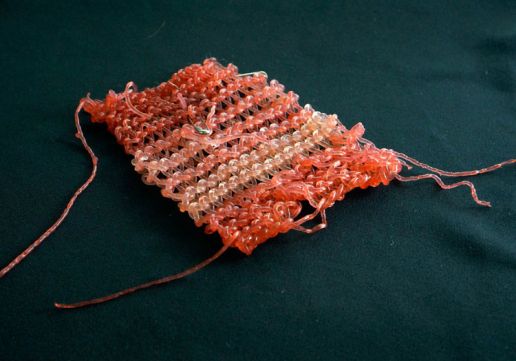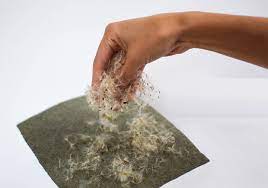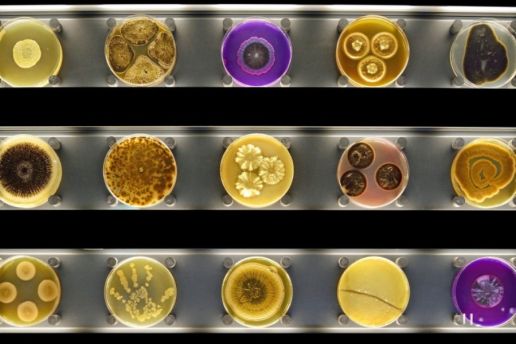Sustainable Innovation
Textile Inventions You Need To Be Acquainted With In 2022
Textile Inventions You Need To Be Acquainted With In 2022
(If You Are Not Already)
AN INDUSTRY INSIGHT BY FASHNERD FOUNDER MUCHANETA KAPFUNDE.
The race to digitise the textile sector is expected to continue to gain momentum throughout 2022. However, with sustainability still a key theme, the good news is that game-changing innovations are helping a very traditional industry recognise business opportunities that push towards a fundamental shift in industry practices and any future developments.
Reimagining the Textiles System With a New Mindset
No longer held back by conventional processes, more and more textile manufacturers, suppliers, buyers, and designers are now transitioning towards a textile system that allows them to harness better economic, societal, and environmental outcomes. In addition, prioritising the application of new technologies has helped the textile industry take those first steps of progress towards adopting new business models, technological innovation, and radical collaboration.
“Our success depends not only on the work within our own value chain but on disruptive partnerships across a broader textile production and manufacturing ecosystem,” stated Cyrus Wadia, VP Sustainable Business and Innovation at Nike, in the Ellen MacArthur Foundation report “A New Textiles Economy: Redesigning Fashion’s Future”.
As technology continues to have a significant impact on the textile industry, in 2022, make sure you keep an eye on the following innovations from these three game-changing companies:
1. Kelp – One Of The Most Renewable Natural Resources: Algiknit
In the business to make textile production more environmentally conscious, Algiknit offers material options that perform as well as conventional materials.
“The yarn we’re producing today has the look and feel of the natural fibres consumers are familiar with, plus all the makings of a no-compromise conscious material,” said Aaron Nesser, co-founder and CTO of AlgiKnit, in a statement.
Staying ahead of the curve in fabric innovations, Algiknit could effectively bring kelp-based yarn into the mainstream. The startup is currently poised to scale the production of eco-conscious yarns for use by forward-thinking global fashion brands.
With Kelp considered one of the most renewable natural resources globally, the Brooklyn-based material-maker of carbon-neutral, toxic-free textiles has spent the past four years developing technology to produce yarns on a commercial scale. They hope that they will be able to scale production to a point where they will be able to meet growing material demand in time.
2. Freshwater-free Textile Fibres, The Next Alternative: SaltyCo
UK startup, SaltyCO, has come up with freshwater-free textile fibres. Hoping to establish an alternative to freshwater-intensive cotton cultivation, SaltyCO is on a mission to tackle the side effect of wasteful freshwater use by rethinking the system and installing a new category in sustainable textile production.
Acknowledging that there is no single solution to “sustainability”, SaltyCO’s vision is to build a planet-healing supply chain that begins with an approach to regenerative agriculture. Hoping to create the most impact by sourcing their plant material, the materials science company has so far found a suitable salt-tolerant plant for the textile supply chain. They are now researching regenerative cultivation techniques and textile products. The outcome has been BioPuff, a plant-based fibre fill produced in SaltyCO’s laboratory in Scotland.
An alternative to animal and petroleum-based products, BioPuff is made of pure cellulose and has been reported to reduce petroleum by 70% in every jacket impact and save up to 25 litres of fresh drinking water.
3. Built with Biology, Not Oil: Biofabricate
Do you know that we are at the dawn of a new age where we can biodesign and biofabricate? No longer confined to small-scale experiments, biomaterials have garnered interest from well-known brands, like Adidas and Hermès, looking for plant-based alternatives to petroleum.
Recognising the potential of ‘Living Factories’ like Mycelium, Bacteria, Yeast and Algae, is Biofabricate. They are a startup that believes that a sustainable material world is built with biology, not oil. Recognising that there are no shortcuts, Suzanne Lee, founder and CEO of Biofabricate, believes that patience and tenacity by the industry should be a requirement.
“This can be a struggle for many designers – who like fast outcomes. But unfortunately, biology doesn’t work like that”, explained Lee when interviewed by Nextnature.net.
As a new generation of biofabrication and cell agriculture startups continue to set the standard, Biofabricate has become the go-to for those looking to bridge design with biotech intelligently.
In the current landscape, textile inventions are setting the standard by driving the textile industry to understand the facts and participate in the solutions. But, in the end, material innovation is a constant journey, one you should already be on if you aren’t already.
Are you interested in more indepth facts and figures of the new textile economy?
Check out FashNerd.com to follow the journey of the industry or read one of the following blog articles:
Antimicrobial Textiles, Hero or Hype?
The New Textiles Economy, A Catalyst For Transformation?
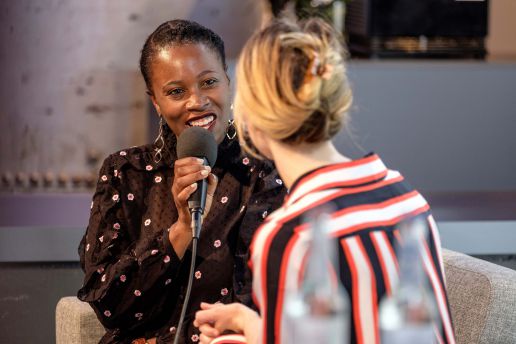
ABOUT THE AUTHOR
Founding editor-in-chief of FashNerd.com, Muchaneta has worked in the fashion industry for over 14 years. She is currently one of the leading influencers speaking and writing about the merger of fashion with technology and wearable technology.
Muchaneta Kapfunde | editor@fashnerd.com
KEYHOUSE – A Strong Network of Creative Minds
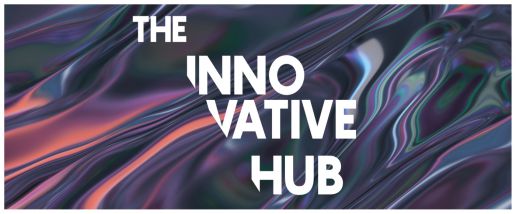
Progress and new levels of sustainability. Combining hand-made and digitalisation. The future of the textile and fashion industry is complex and challenging. The demand for greater transparency and information, for innovative solutions, new mindsets and forms of production is all the more loud and urgent.
KEYHOUSE, as the think tank of MUNICH FABRIC START, offers concrete approaches towards a visionary textile and fashion industry, providing answers, inviting discussions and interaction, showcasing new directions and definitions of innovation. In this way, an inspiring network of unique partnerships and collaborations with ambitious projects has been established.
At KEYHOUSE, everything revolves around innovation – be it the luminous jacket from MUSGO TECH, 3D printing and 3D knitting from Cocccon, the solution for a digitally networked supply chain from Lectra, or the Nebudye dyeing process using the Officina +39 nebulization system. Numerous innovative suppliers will showcase their trend defining developments for the first time at KEYHOUSE, including CLO Virtual Fashion with 3D visualisation of garments, Circular Fashion with workshops and software tools for innovative recycling management, and Recover providing accurate colour in upcycled yarns.
“Fashion must take a holistic hybrid approach in order to establish sustainable innovations in the apparel industry as a permanent feature.
These sustainability initiatives can be implemented by integrating new technologies with a high degree of design, disruption and integration.”
Muchaneta Kapfunde, Founding Editor-in-Chief FashNerd.com
HIGHLIGHTS AT KEYHOUSE
THE NUTURE ROOM WITH PAULINE VAN DONGEN. With “The Nurture Room“, Pauline van Dongen creates a space for meeting and inviting exchange among like-minded people who share the desire to redefine the fashion industry. The organised shared research sessions on topics such as workwear, outdoor clothing or casual wear etc. are led by fashion tech experts and show how technology can be sensibly embedded in clothing. Workshops will inspire participants to expand their know-how and connect companies along the entire value chain so that they can follow up with concrete action. Please find an overview of all workshops sessions here.
Due to the limited number of participants in the free workshops, we kindly ask you to register by sending an email to Chantal Gräff at cgr@munichfabricstart.com.
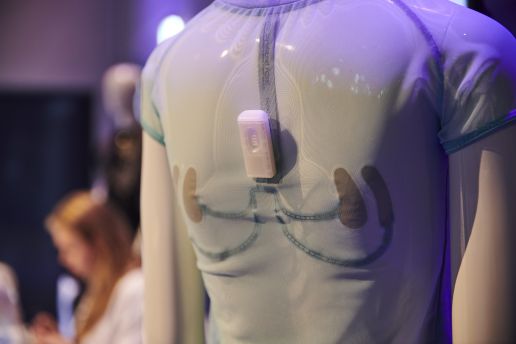
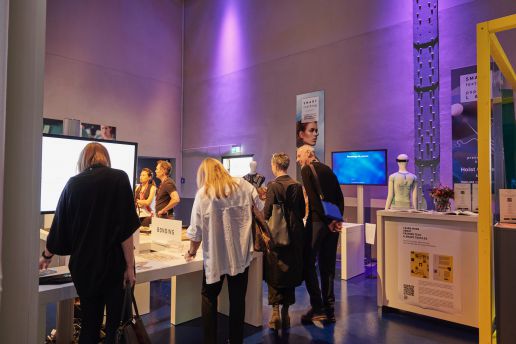
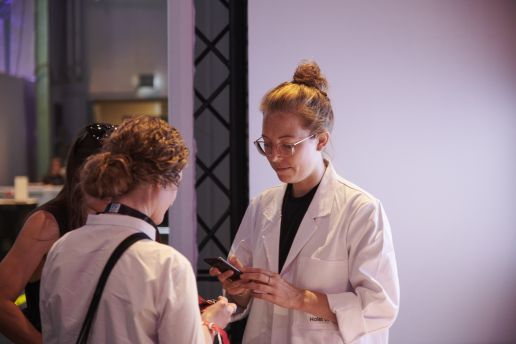
RE-FREAM PROJECT BY CARMINA FERRI. With her project Re-FREAM, Carmina Ferri, founder and CEO of Care Applications, wants to bring together designers and researchers to jointly develop innovative fashion concepts. Designers are invited to submit their proposals for ‘3D Manufacturing’, ‘Electronic & Textiles’ and ‘From Linear to Sustainable Circular Systems’. The winning innovative art concepts will then be developed in the three corresponding research centres.
The SUSTAINABLE INNOVATIONS Forum combines poetry and problem solving. It will showcase inspiring developments and establish new perspectives on the world of textiles: from extraordinary innovations, new material resources and the combination of the traditional and modern to captivating and thought provoking installations. Discover the following innovations:
- Karin Vlug und Bas Froon see the future of fashion in regional fashion production that is made to measure, on request and using digital technologies.
- CONSUMPTION OF HERITAGE. Sun Lee questions the values of consumers and producers and thus those of the conventional fashion system.
- PRINTING WITH LIGHT. Madeleine Marquardt combines new technologies with Cynatopie, one of the first photographic printing processes, thus opening up new possibilities for modern textile design.
- SEAMLINE PROJECT. Gu Qiong emphasizes the object character of clothing by highlighting seams in brightly coloured yarns.
- SISAL, MORE THAN A ROPE. Isabella Monaco uses sisal for clothing and is experimenting with hydrogen peroxide and sodium carbonate to make the natural fibre softer while maintaining its robustness.
- RINSE OFF. Caterina Tioli uses the properties of potato starch to stabilize unspun wool for processing.
- CT DAIRY. Gal Yakobvitch develops a water-repellent coating for textiles based from milk protein. The result is a sustainable unisex workwear made of vegetable-dyed second-hand T-shirts.
- FOREIGN FORAGING. Jeanette Lili Weiss poetically addresses the complex problem of scarcity and abundance in times of climate change.
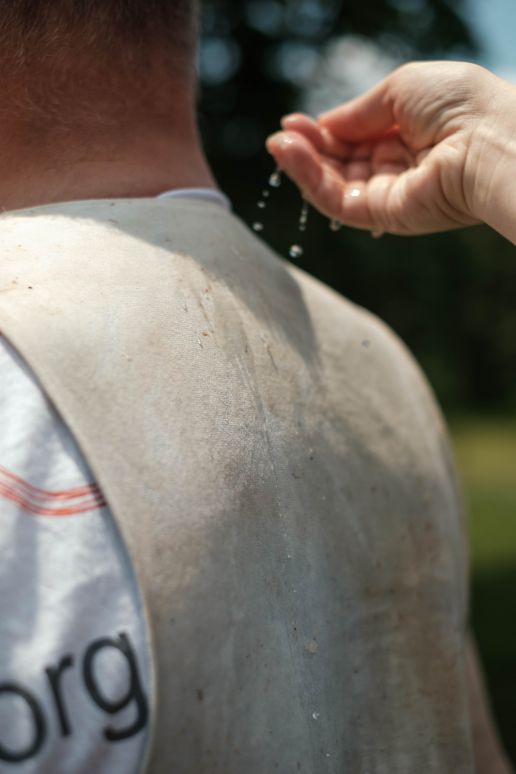
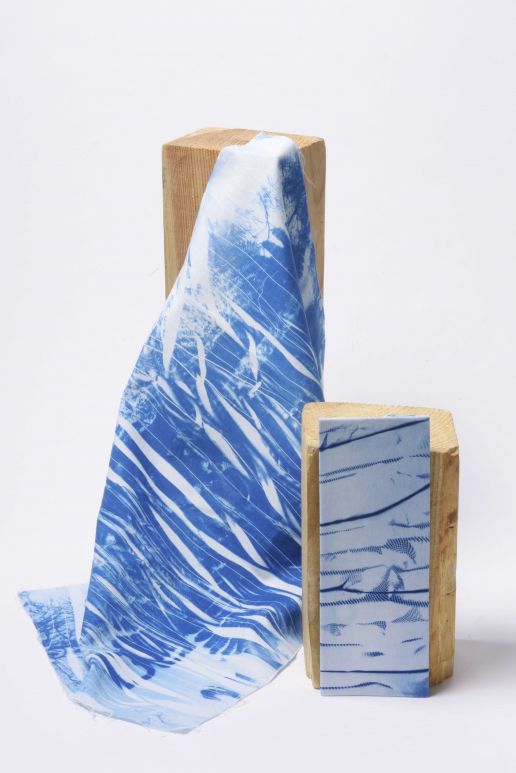
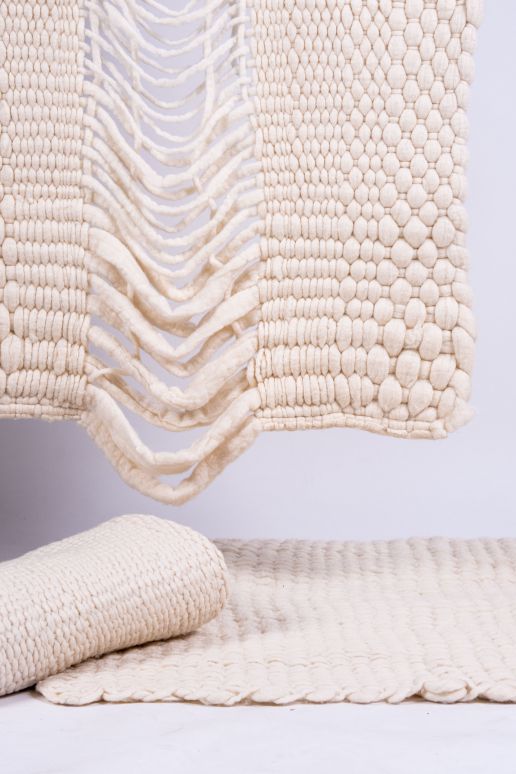
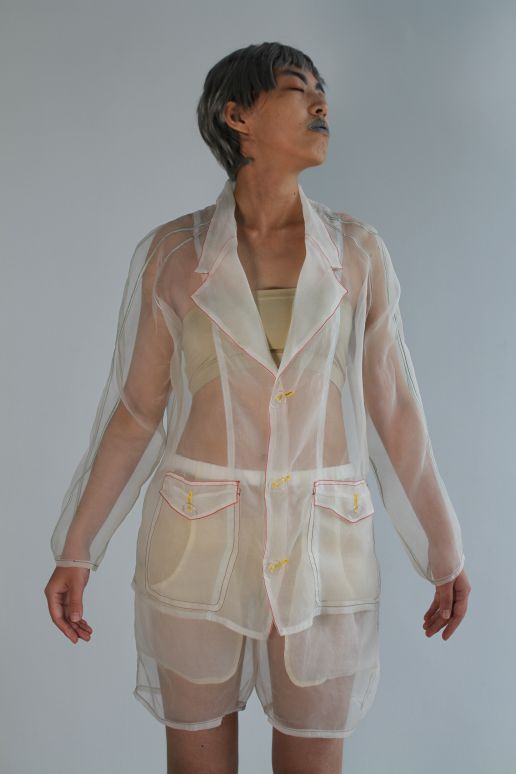
“Our goal is to take a look at the possible future with these 8 selected Sustainable Innovations, so that the industry and its professionals can reach the next level. It is an ongoing dialogue. We are a community that is growing and connecting, sharing visions and ideas – it’s a very inspiring atmosphere”.
Simon Angel, Curator Sustainable Innovations MUNICH FABRIC START
KEYNOTES & SEMINARS
KEYHOUSE also offers a comprehensive and exclusive event programme. This includes trend seminars, exclusive workshops, keynotes and round tables. You can find the complete event program here.
Exklusive Trend Seminar by Li Edelkoort – Tuesday, 4 Feb 2020, 4pm – 6.30pm
Arguably the most famous trend forecaster of our time holds an exclusive trend seminar. In an impressive presentation, GREEN WAVE – the Fashion Trends for Spring.Summer 21, as GREEN BOOK – the Recreationwear Trends for Spring.Summer 21, as well as STILLNESS – a Full Colour Forecast for Autumn.Winter 21/22.
David Shah about „The 10 Design Pillars” – Tuesday, 4 Feb 2020, 10.30am – 12pm
The trend forecaster and publisher of Textile View will deliver the keynote “The 10 Design Pillars”. David Shah presents new perspectives on design influences from Slowbilisation to Hopepunk, from Biophilia to Datascapes.
„Fashion Activism” Panel by Muchaneta Kapfunde – Wednesday, 5 Feb 2020, 11am – 12pm
FashNerd founder Muchaneta Kapfunde brings together the experts Kresse Wesling, Styliani Parascha, Marta Waydel and Marina Toeters as part of the panel discussion “Fashion Activism: Creating the Fashion of the Future.”
“United Nations SDG’s Agenda 2030: Challenges & Opportunities for the textile industry” – Wednesday, 05 Feb 2020, 1pm – 2pm
In 2015, the UNGC formulated 17 goals for the sustainable development of our planet and on this basis the “Agenda 2030” of the United Nations was created. Daniel Pinto, Business Director of Scoop, will refer in his presentation to the challenges and opportunities for the textile industry and explain how existing technologies and innovations in the industry can be used to achieve the set goals.
„How automation will change the fashion industry” – Wednesday, 5 Feb 2020, 2pm – 3pm
Five experts in technology, David Schmelzeisen, Ralf Schneider, Dr. Thomas Fischer, Jon Zornow and Sabine Kühnl will discuss “Don’t be afraid of robots – how automation will change the fashion industry” in a panel discussion. Automation, digitalisation and localisation are the trends that are reshaping the global fashion market. Is the fashion industry ready to adapt to new standards? What consequences does this have for the current procurement structure, also in terms of social responsibility?
“The data behind today’s winning marketing strategies” – Wednesday, 5 Feb 2020, 5pm – 6pm
Gina Gulberti, VP Digital Marketing at Launchmetrics, explains in her keynote “The data behind today’s winning marketing strategies”.
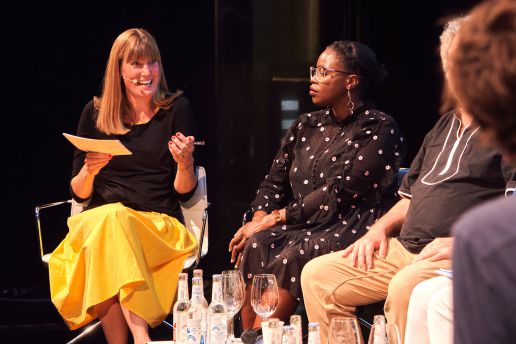
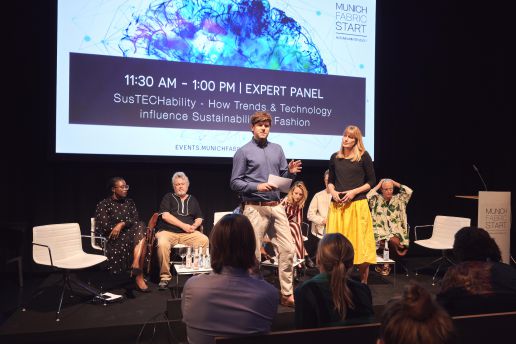
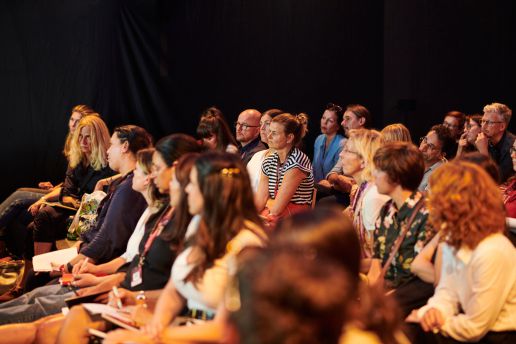
All dates and the complete lecture programme can be found here.
MUNICH FABRIC START & KEYHOUSE & SOURCING
04 February 2020 | 9.30am – 6.30pm
05 February 2020 | 9.30am – 6.30pm
06 February 2020 | 9.30am – 4.00pm
BLUEZONE
04 February 2020 | 9.30am – 6.30pm
05 February 2020 | 9.30am – 6.30pm


